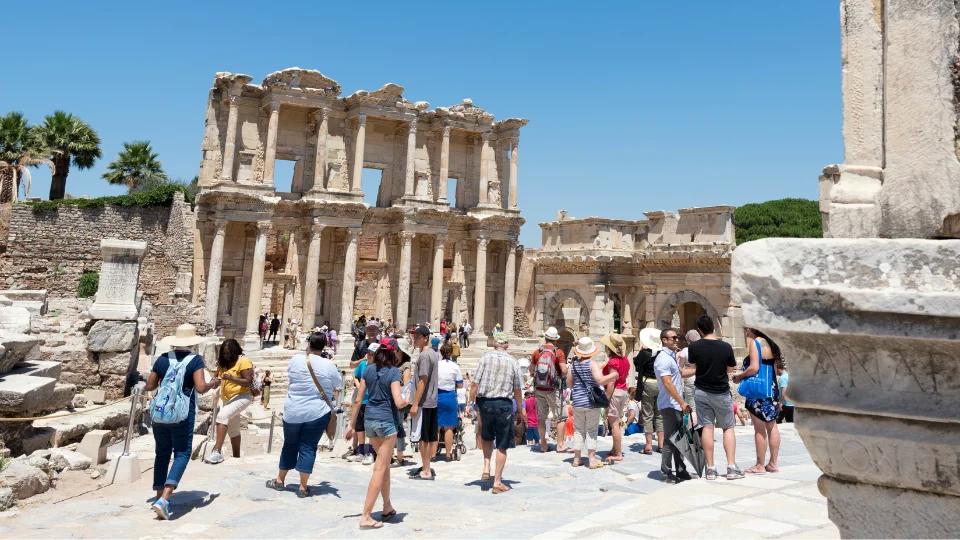
9 Turkish Words That Are More Fun to Say Than English
Traveling in Turkey is more than visiting monuments. It is about people, sounds, and everyday life. Language is a big part of this experience. Some Turkish words may look different at first, but when you say them, they feel natural and even playful. Many travelers notice that certain Turkish words are more fun to say than their English versions. Learning them is not only useful but also adds joy to your journey. If you are planning a trip, start with a few fun Turkish words. They will make your conversations easier and your trip more authentic.

What Are The Funniest Turkish Words?
One of the most common words that visitors like is Cay (tea). Tea is everywhere in Turkey. The word is short, smooth, and easy to pronounce. Another popular one is Lokum, which means Turkish delight. Just like the sweet itself, the word feels soft when you say it. During a Private Istanbul Food Tour, guides often introduce these words while you taste traditional snacks.
Which Turkish Words Sound Great?
- Yakamoz – This word means the reflection of the moon on the water. It sounds poetic and is often described as one of the most beautiful words in Turkish.
- Kismet – destiny or fate, often tied to belief that events are “meant to be.”
- Gonul – literally “heart” or “soul,” but it means emotional will, inner desire, or heartfelt connection.
- Hasret – a deep longing or homesickness, stronger than simple “missing.”
When you join a Private Bosphorus Cruise Tour, you may hear locals using words like yakamoz to describe the magical light on the sea. These words connect language with nature in a unique way.

What Turkish Phrases Travelers Should Know?
Here are some easy Turkish phrases that are both practical and enjoyable:
- Merhaba – Hello
- Tesekkurler – Thank you
- Gule gule – Goodbye (literally “go smiling”)
- Afiyet olsun – Said before or after eating, like “enjoy your meal”
These phrases are short and simple. They are also powerful in creating a friendly atmosphere. Using them during a Private Cappadocia Tour or in a local market will make your trip much smoother.

Why Should You Learn Basic Turkish Vocabulary?
Learning basic Turkish vocabulary is helpful for daily situations. Locals appreciate even a small effort from visitors. Using words like pazar (market) or dolmus (shared taxi) shows that you are trying to understand their culture. This effort often leads to warmer conversations. Guides on a Private Ephesus Tour often encourage guests to practice simple words in shops and bazaars. It makes the experience more personal.
What Are Some Tips To Learn Turkish For Travel?
- Begin with words that are short and sound fun.
- Repeat them out loud several times.
- Listen carefully to locals and copy the rhythm.
- Practice with flashcards or easy apps.
If you want a deeper experience, you can also join a Private Istanbul Old City Tour, where guides often help travelers practice phrases while visiting famous landmarks. This method combines sightseeing with language learning.

Can Turkish Words Help You Connect With Locals?
Yes. Using local words shows respect. It often brings smiles and starts conversations. For example, after eating a homemade meal, you can say Elinize saglik, which means “health to your hands.” Turkish hosts feel proud when guests use this phrase. Even simple words like balik (fish) or kopek (dog) can create friendly talks. Discovering fun Turkish words is not only about language. It is about enjoying the culture in a simple and playful way.
If you are ready to explore, try using these words during a Private Turkey Highlights Tour. You will see how one small phrase can lead to laughter, kindness, and unforgettable memories. Contact us today to plan your trip and start practicing these fun words in real life.